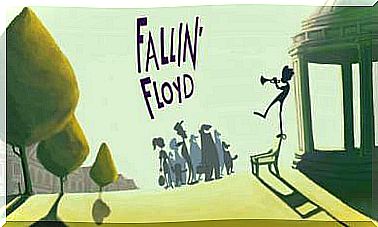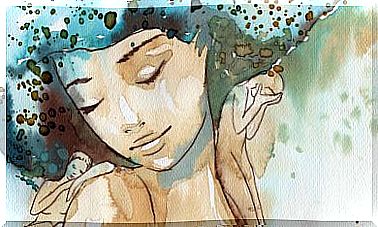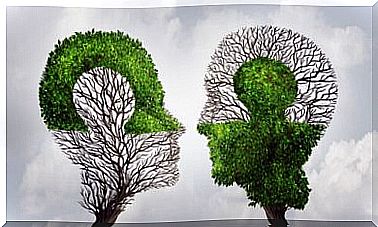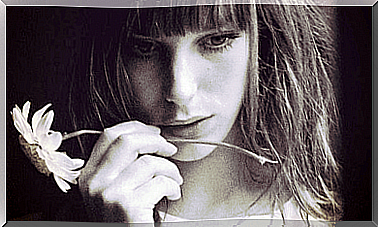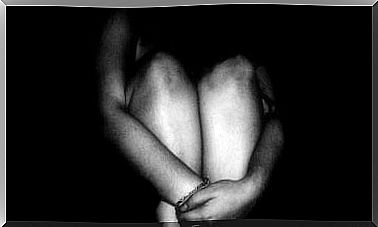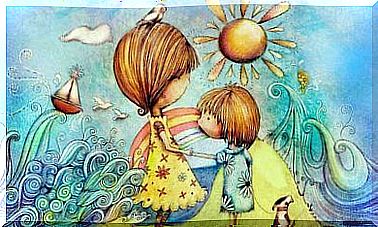When Melancholy Takes Over Our Minds

Melancholy is not poetic or evocative. It is a formless emptiness, a desire for yesterday that takes us completely away from the present. Few states add to us such characteristic stillness, tiredness, and psychological exhaustion as to mold a very specific subtype of depression that, in many cases, can be quite severe.
Victor Hugo said that melancholy is the happiness of being sad. Stendhal was also of the opinion that those who engaged in writing, painting or poetry were people prone to melancholy. As we see, this emotional state has always been related to the natural impulse that connects human beings to creativity, to the most virtuous and deep side of our being that uses sadness for its own benefit.
No melancholy, the ink was gone, romantics of that time used to think. However, what our artists of those times forgot is that the Greeks coined this term to diagnose what we now know as depression. It was Hippocrates who suggested that melancholy was an excess of black bile, which caused a person to feel discouraged, frightened, sad, etc.
Later, Sigmund Freud began to delve into this idea to give it an authentic clinical basis. Melancholy, therefore, is not mere sadness, it is not that catalytic state capable of giving rise to our muses. Melancholy is like the cinematic metaphor brought to us by Lars Von Trier in his famous film. A planet called depression that, at any moment, can collide with us to destroy us entirely.
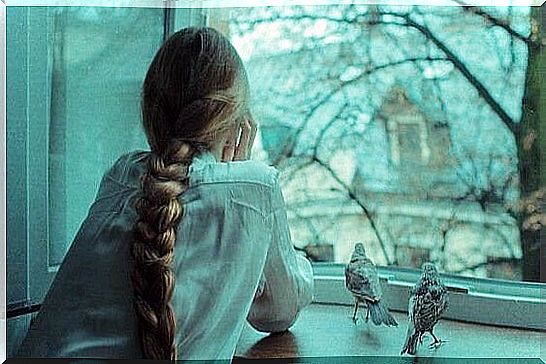
When melancholy knocks on our door
We are all susceptible to feeling sad at a certain moment, to realizing this emptiness of nostalgia, where memories of yesterday are introduced that make us see the present with a halo of sadness. However, these states are generally one-off and limited in time. Furthermore, psychologists remind us that while sadness often has a halo effect, it often leaves room for other affects, thoughts, and motivations.
Now, when melancholy settles into our lives, it leaves no room for anything else. The person no longer feels pleasure, curiosity, interest… In fact, Silber, Rey, Savard and Post (1980) define the melancholic state as “affective inaccessibility”. That is, the person has a clear impossibility of feeling any kind of affection, including sadness. What actually exists is a complete change in emotionality.
On the other hand, something even less important is worth noting. In the new edition of the DSM-V (Diagnostic and Statistical Manual of Mental Disorders), melancholia is described as a subtype of major depression. Some people do not agree with this classification and prefer to see it as an identifiable affective disorder and separable from it. In any case, we must be certain that we are facing a depressive disorder with a series of very clear characteristics. Let’s see them below.

What are the symptoms of melancholy?
We signaled this a moment ago. The main characteristic of the person with melancholia is the inability to feel affection. There is no pleasure, there is no interest, there is no emotionality associated with sadness where tears or the expression of discomfort can occur. Melancholy is stillness, emptiness, and a permanent longing for something one cannot define.
- In addition, there is also evidence of psychomotor retardation, reasoning difficulties, permanent physical and mental exhaustion.
- Another common characteristic is the inability to explain their state, to connect with their inner reality and to be able to communicate in words what is happening to them, what they feel.
Finally, a fact that often differentiates melancholic depression from other depressions is the inability to think. In other depressive disorders, patients experience a large number of nervous, obsessive and exhausting thoughts, where suicidal ideas are undoubtedly not lacking. In melancholy, the last does not happen.
In the words of psychologist Giovanni Stanghellini, “ if major depression is a shipwreck with a spectator, melancholy resembles a shipwreck without a spectator ”. That is, while the depressed person usually seeks a meaning for their depression, the melancholy person is confined to himself and does not see or feel anything.

Melancholy and the therapeutic approach
The treatment that the melancholy person will receive will basically depend on their diagnosis. As we already know, there is not just one type of depression, so when melancholy appears as a descriptive category, several things can happen. The first is to define whether we are facing a patient with major depression, bipolar melancholic depression, Cotard syndrome or delusional or non-delusional melancholy.
Everything will undoubtedly depend on the assessment made by the professionals and the particular case of this patient. In most cases, and given that the root of this clinical condition is often biological, people respond very well to pharmacological treatments. Likewise, cognitive-behavioral therapy, in turn, emerges as a strategy with good results.
Finally, and in more severe cases, such as deep depressions, other psychiatric treatments and closer and more constant monitoring will be necessary. In any case, we are facing a psychological condition that affects 2% of the population and that generally responds very well to the therapeutic approaches we currently have.
